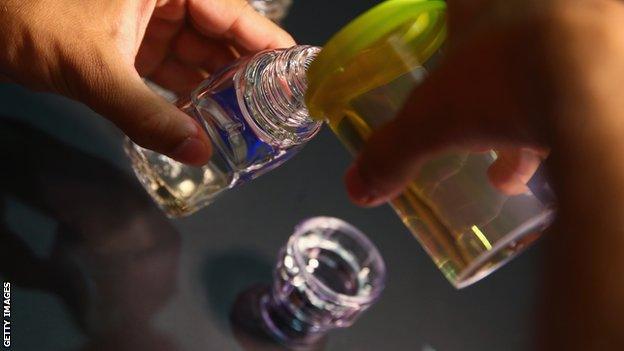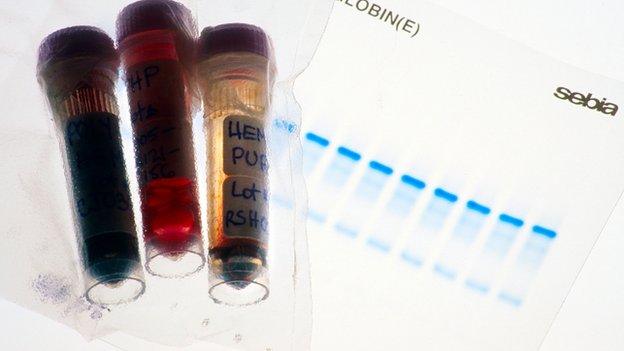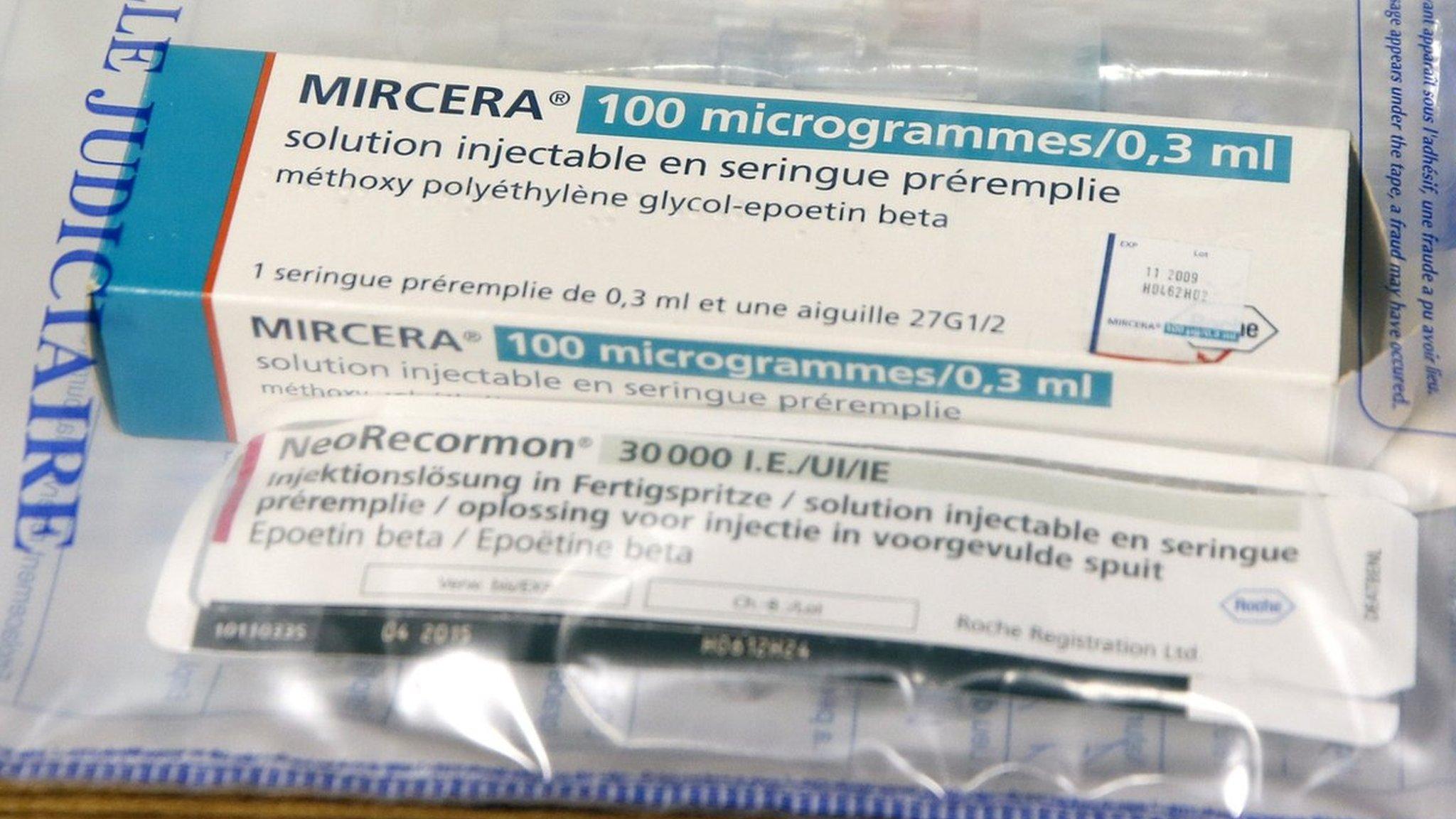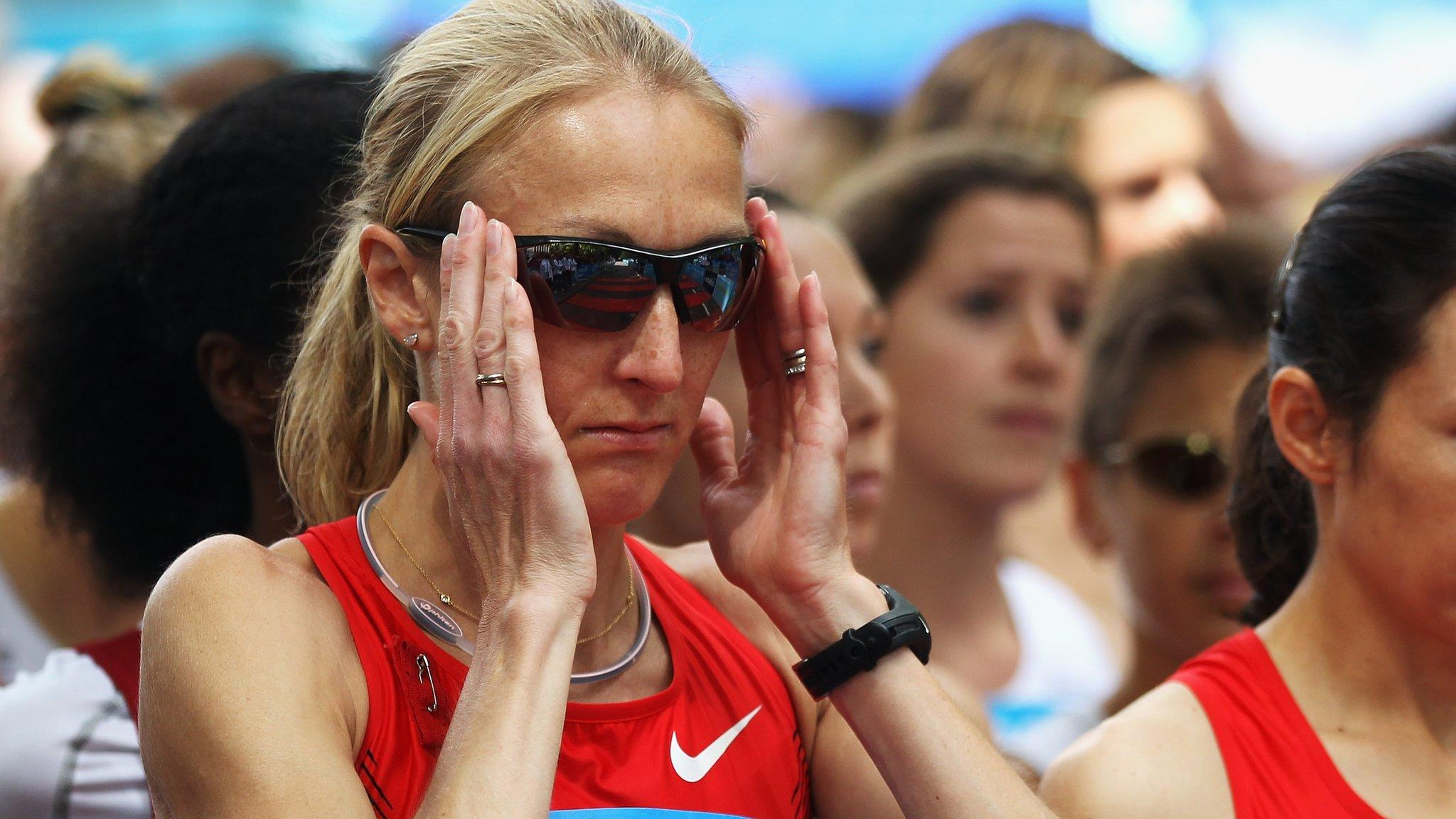Minimum ban for doping increased from two years to four
- Published

The minimum ban for deliberate cheating has been increased from two years to four
Drug cheats in sport face a minimum four-year ban under new rules which came into effect from 1 January.
Changes to the World Anti-Doping Code, which unifies anti-doping rules for global sports, have increased the suspension for doping from two years.
Other changes will see less leniency given for missed tests but possible reduced bans for helping investigators.
UK sports minister Helen Grant said the changes would "better protect clean athletes around the world".
"Successful implementation will mean an innovative and robust anti-doping programme that reaches further than ever before, to more athletes, more support personnel and more sport lovers, all of who want to be part of sport free from doping," she added in a statement via UK Anti-Doping.
"We will see tougher sanctions - not just for athletes, but also for those who assist in the doping process."
The punishment for missing three tests within a 12-month period has been increased from 18 months to two years.
While deliberate cheating leads to a four-year ban, athletes guilty of "inadvertent doping" will receive a two-year ban - although they can get a reduction if they have "substantial proof that they were not at fault or intending to cheat".
Wada said the 2015 code had more incentive for anyone providing "substantial assistance" in uncovering doping.
"Admitting a violation can be rewarded with a reduced ban, with Wada having the final say. In exceptional cases, Wada has the power to eliminate a ban entirely and offer complete confidentiality for substantial assistance," it said.
The revised code was agreed by the World Anti-Doping Agency (Wada) in November after over 18 months of research by the governing body.
- Published10 December 2014

- Published9 December 2014

- Published6 December 2014

- Published5 December 2014

- Published7 December 2014
